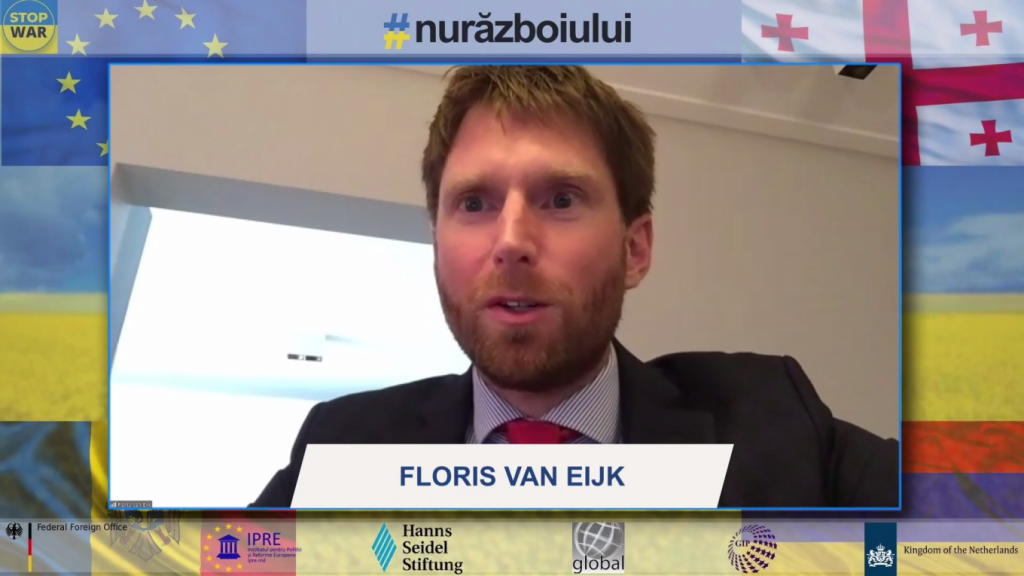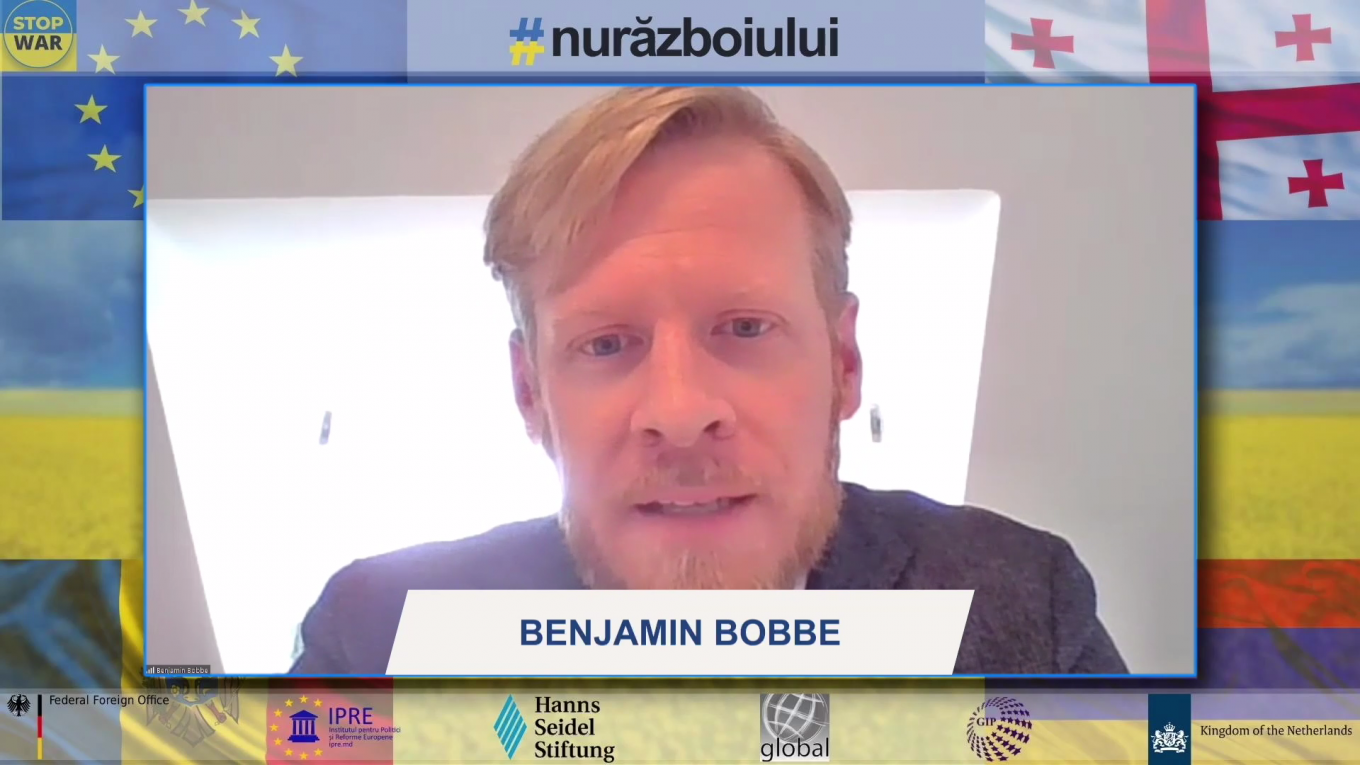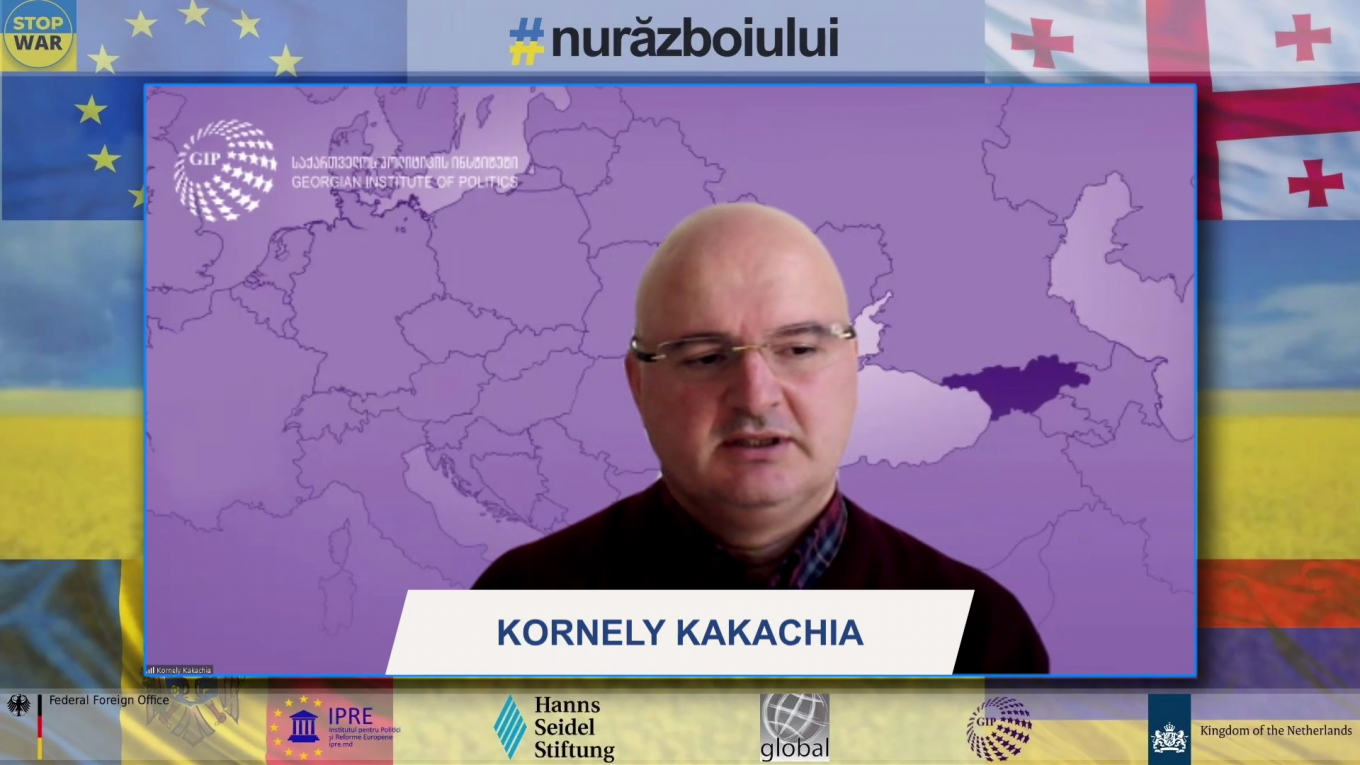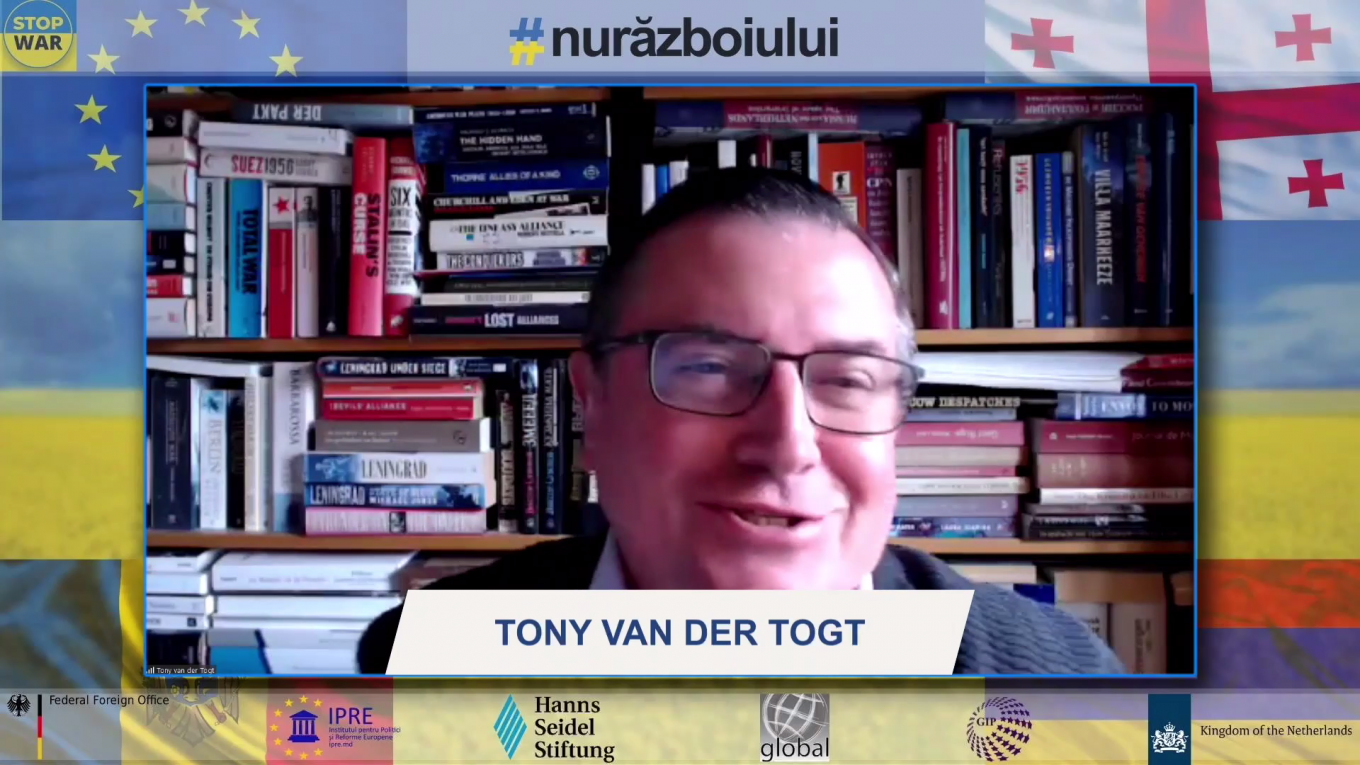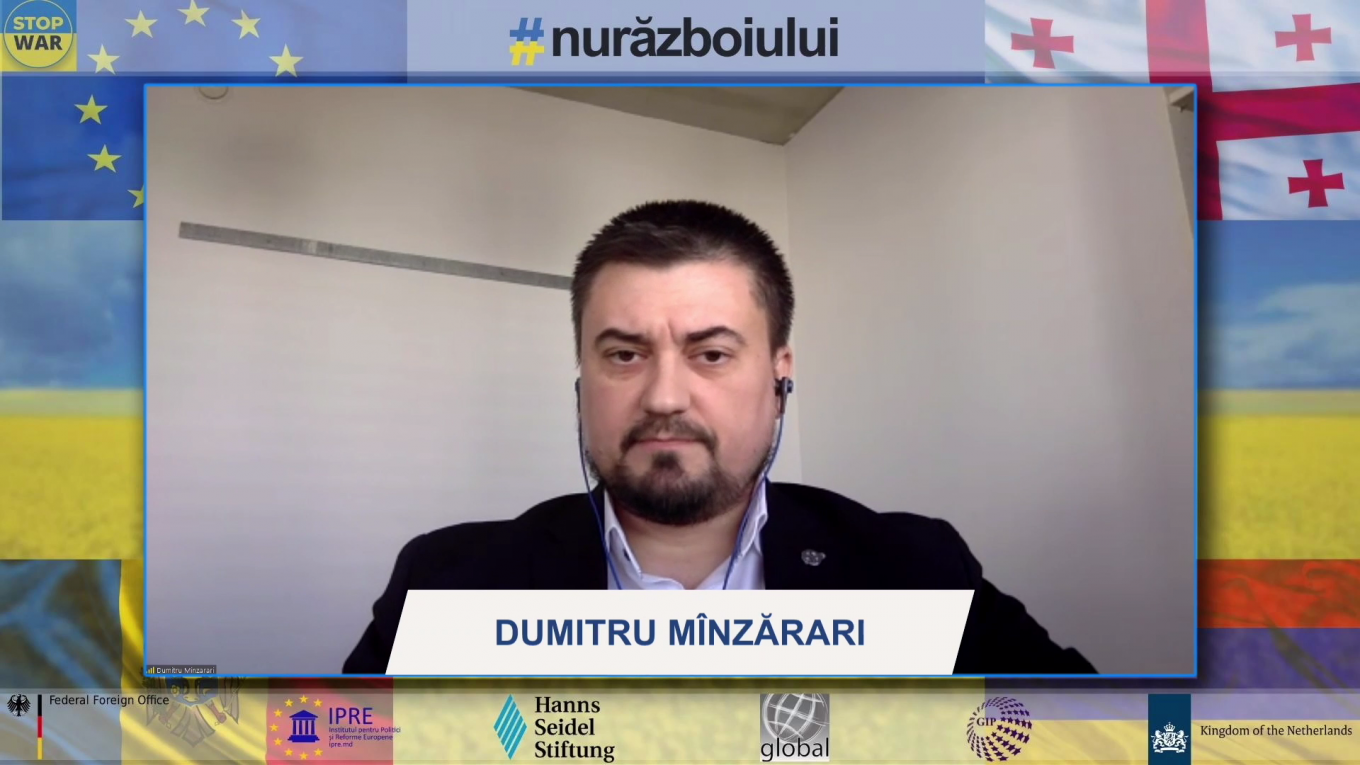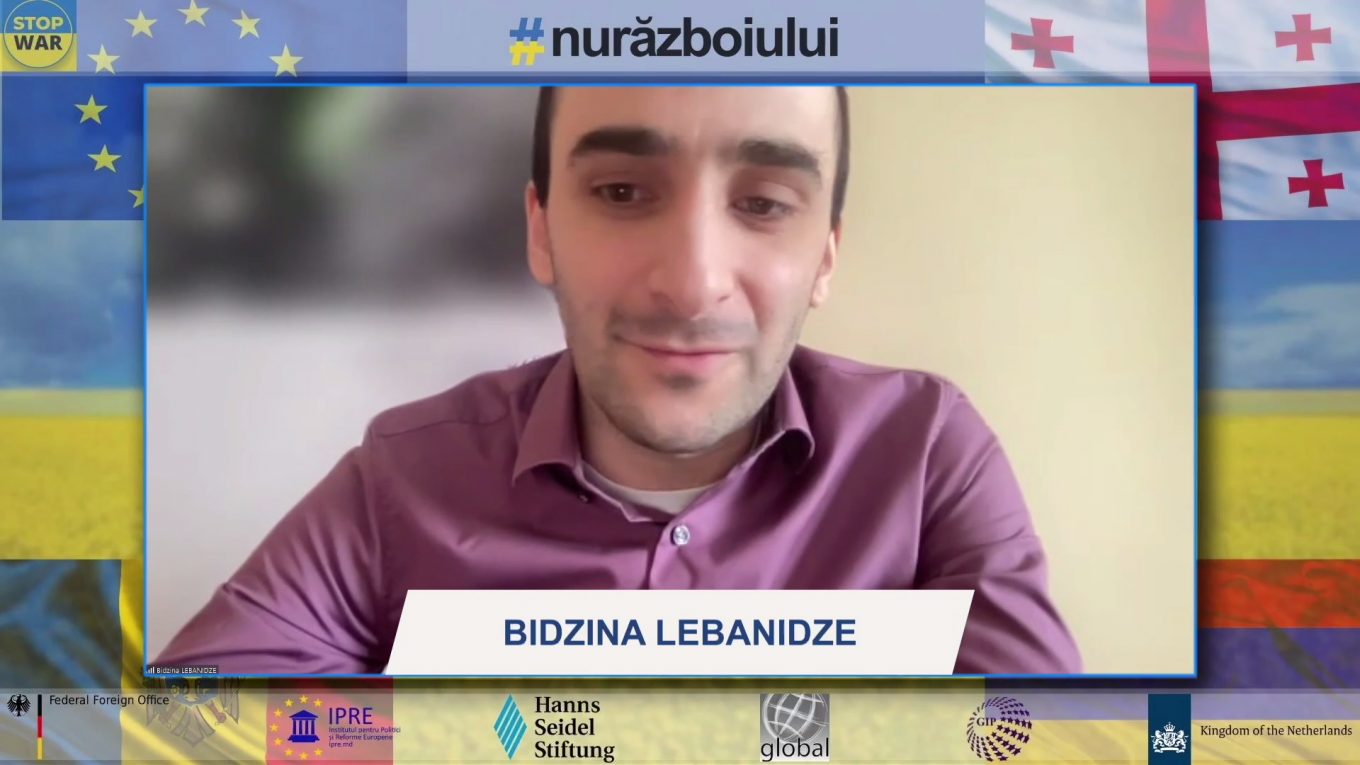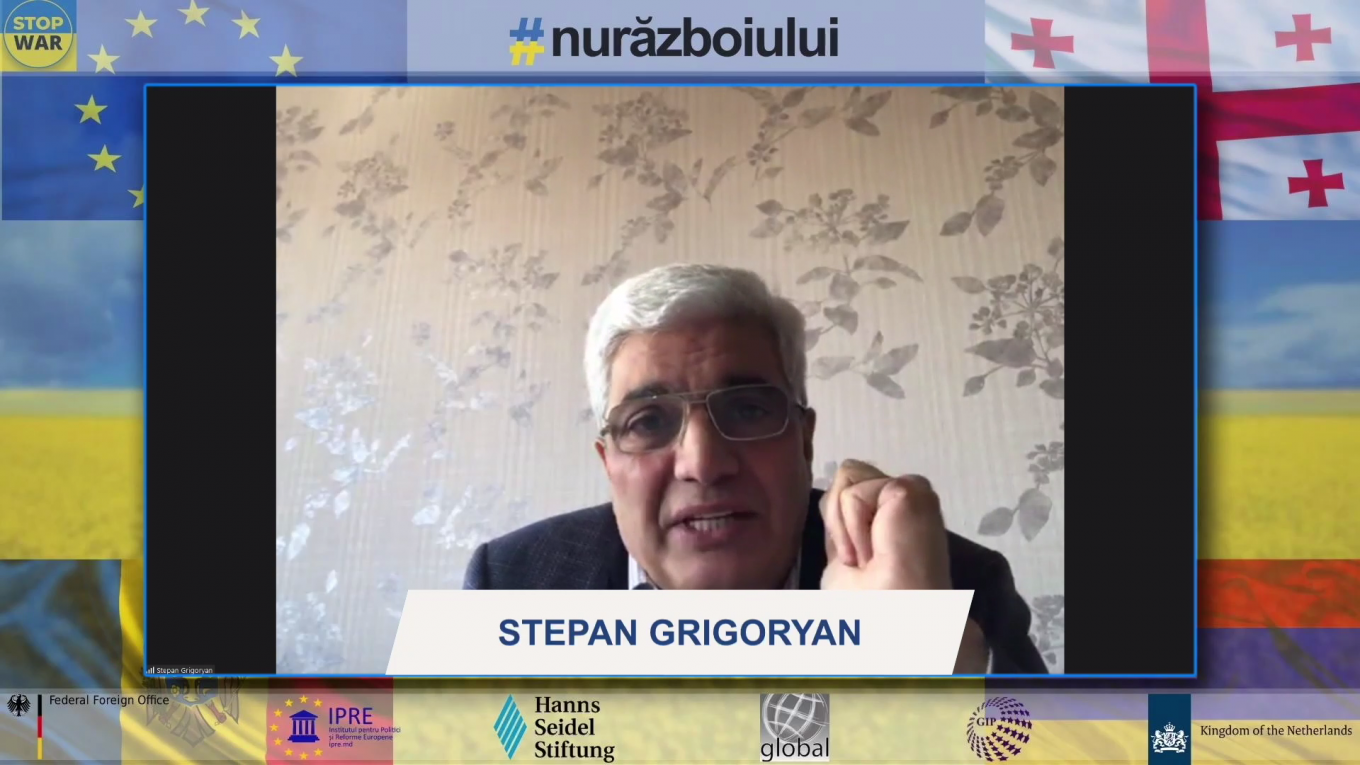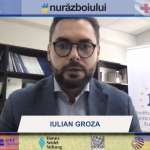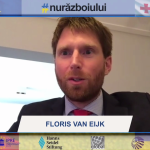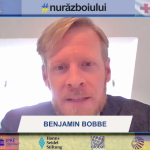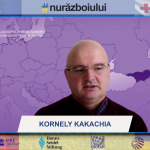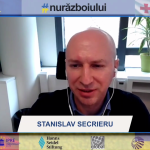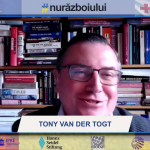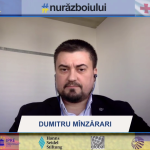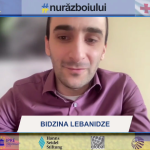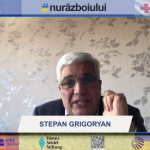Putin’s war in Ukraine, the EU’s response and the effects on Moldova, Georgia and Armenia
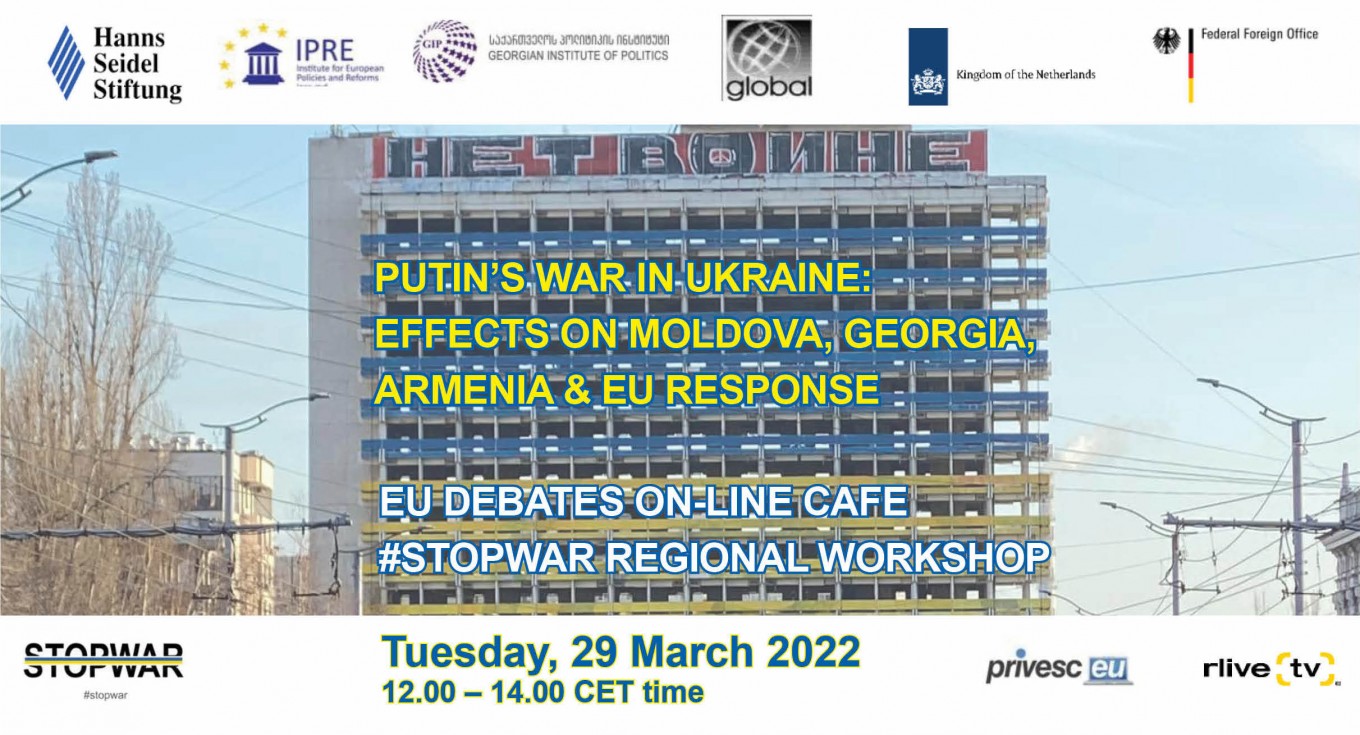
The Institute for European Policies and Reforms (IPRE), in partnership with the Georgian Institute of Politics (GIP, Georgia) and the Analytical Center for Regional Globalization and Cooperation (ACGRC, Armenia), organized on Tuesday, March 29th, the online event #StopWar Regional Workshop in the format of #EUDebatesCafé entitled: “Putin’s War in Ukraine: Effects on Moldova, Georgia and Armenia and the EU’s Response”.
The invited guest speakers at the event, which was moderated by Iulian Groza, #IPRE Executive Director, discussed the consequences of the war in Ukraine, the refugee crisis and the political, humanitarian, financial and military support for Ukraine to resist and defend itself from Russia’s attack, as well as the need to further strengthen the resilience and resistance against Russia’s hybrid aggression in the region, as well as the EU membership applications of Ukraine, Georgia and Moldova.
Further below, we propose some of the main speeches of the speakers.
FLORIS VAN EIJK, Head of the Office of the Embassy of the Kingdom of the Netherlands in the Republic of Moldova: “We all realize that February 24 was a turning point in history. Very few politicians and diplomats believed that Vladimir Putin would indeed launch an invasion on Ukraine, destroying millions of lives and killing thousands of people. Now, the Russian army is facing an unexpected resistance from the Ukrainian army and has a low morale. So the question is how far will Putin go? The answer to this question will influence the future of Ukraine and Russia, but also what relationship they will have with the west. It is important to talk now also about the security of the countries in the region, such as Georgia, Armenia and Moldova, including their aspirations to join the EU. It is hard to predict how things will unfold, but it is important to draw lessons and discuss different scenarios, but also about the impact of war for the countries of the region. We need to see how we can strengthen the resilience of these countries to prevent some grim scenarios.”
BENJAMIN BOBBE, Regional Representative of the Hanns Seidel Foundation in Ukraine, Moldova and Romania: “We all strongly condemn Russia’s invasion of Ukraine, but this is not enough. A unit in action is required. The current situation is the obvious result of a lack of judgment on the part of Russia, but also of erroneous thinking on the part of some European countries. For a long time we have noticed in many countries a situation, which is not based on facts, but on interest, but we did not intervene. So now it is important to make transparent, robust analyses that are based on facts and scenarios that need to be discussed, in several debates, such as the one today.”
KORNELY KAKACHIA, Director, Georgian Institute of Politics (GIP): “I want to reiterate our support for our Ukrainian friends, because this fight that is happening in Ukraine affects both Georgia, Moldova, Armenia, but also the whole of Europe. So it is important to discuss now what the future of the Eastern Partnership is, as we should call it in the future. There will be many questions after the war, which we do not actually know how it will end and what the role of the EU will be, because things are changing very dramatically. We now have more questions than answers, and I think that we will have a great deal of discussion in the coming months about the future of this region. I believe that we must work together with our European partners, because today the target may be Ukraine, and tomorrow it could be Georgia or any other country.”
STANISLAV SECRIERU, Senior Analyst, EUISS, Paris: “If we look at the effects and consequences of war I see three great levels. The first level is EU-Russia economic relations, level two is the area of security and level three is the enlargement process. If we’re going to take them one at a time. The war had great effects on the EU’s relationship with Russia. The war has begun the great process of decoupling Russia from the EU, and we see that what has been created in the economic field for 30 years now is decoupled from the sanctions applied, but also from Russia’s actions, which are destroying the market economy. I believe that the most important divorce happens in the energy field, but which can hasten the transition to green energy in the medium and long term. Also, the decision to create a gas procurement platform is not only open to the 27 states, but also to the Eastern Partnership countries. If we are to talk about level two, it is important to see how we ensure security in the Russia report. We now see that elements of coercion are being applied, which weakens Russia’s economic and military potential. The EU has already taken many steps in the area of security, where military budgets are much higher and will increase in future years. The EU is also providing unprecedented support to help Ukraine strengthen its defence capability. I expect that the Eastern Partnership countries will continue to be involved in resilience empowerment projects. Level three relates to the debates on enlargement within the Eastern Partnership. It is important that the war made these discussions not only theoretical, but also put them in a practical perspective.”
TONY VAN DER TOGT, Senior Associate Researcher, Clingendael Institute, The Hague: “What we have seen here in The Hague is a geopolitical awakening of the EU, but we do not know how the war in Ukraine will end and whether we will still have an independent Ukraine after it, but also with what Russia we will have. We see that it is already becoming increasingly unlikely that certain security guarantees can be secured with Russia, as long as the current political regime exists in the Kremlin. It becomes very difficult to see Russia today in the near future as a partner. The EU’s response to the war focused predominantly on Ukraine. It is about applying sanctions against Russia, but also about humanitarian aid and the reception of refugees. At the same time, we are trying to support Ukraine in several other areas, such as financial resilience. In this context, we are looking at the reconstruction of post-war Ukraine, as well as making the institutions in Ukraine more resilient now. I believe that we must think about the fact that the prospect of joining the EU is something in the long term. At the same time, in the short term, we are thinking about what to do after the war is over and how we can help Ukraine rebuild itself. It would be logical for Russia to contribute as a reparation after the war, but this depends on the outcome of the war. Thus, I think it is time now to think about a Marshall Plan for Ukraine.”
DUMITRU MÎNZĂRARI, Associate researcher in the Eastern Europe and Eurasia Research Division at SWP, Berlin & associate expert at IPRE, Chisinau: “ I believe that the risk of Moldova being invaded, similarly to Russia’s proxy aggression in Donbas in 2014, or via a conventional war as it is happening now in Ukraine, is high. The first signal in this regard could be a Russian ultimatum, including the demands Russia has been confronting Moldova over the last years, such as demanding internationally-guaranteed neutrality and force upon Moldova a federalization scheme involving Transnistria. If Moldova were not to accept this ultimatum, then Russia could threaten another “special military operation” in Moldova. However, this is not a certain scenario. Its emergence would depend upon the effectiveness of Ukraine in preventing Russia’s control of the Odessa region, as this would allow Russia to create a “bridge” between Crimea and Transnistria. I believe that the Russian aggression against Ukraine was only started because of the Kremlin’s expectations of a non-costly and swift military campaign in Ukraine. To avoid a similar fate Moldova, with the assistance of its international partners, must convince Russia that a military invasion of Moldova would be costly. What happened in Ukraine is an opportunity to learn and I believe that the Moldovan government will have to review its current policies towards Russia, if they want to avoid the Ukrainian scenario.”
BIDZINA LIBANBANIDZE, Senior Political Analyst, Georgian Policy Institute (GIP): “Many in Georgia fear that Tbilisi will be the next target of the Russians, who could invade the country and demand the same conditions as those imposed on ukrainians. In fact, in the worst outcome of the war in Ukraine, it could encourage Putin to continue his military adventure over us. Even if Russia loses politically in Ukraine, the Russian government may need small victories against other post-Soviet states to consolidate its power. Georgia is currently in danger and this is one of the main reasons why our Government has been so ambiguous and careful. On the one hand, they supported ukrainians in international organizations, voting on UN resolutions. On the other hand, they did not join many of the sanctions imposed on Russia. This contributed to tensions between the Ukrainian and Georgian governments. What can be done to avoid Russian aggression in Georgia? In relation to Georgia, much could be done in relation to the accession perspective, which is a long-term process, and this will be a geopolitical instrument of the EU. But also in the long run it can stabilize the internal situation in the three associated countries, as well as strengthening the reform process and the resilience of societies in these states. In the short term, we need to create some policies to prevent a possible invasion of Russia in some of the three countries.”
STEPAN GRIGORYAN, Chairman of the Board of Directors, Analytical Center for Globalization and Regional Cooperation (ACGRC): “Russia’s war against Ukraine is a war against the country’s independence and democracy. Now Ukraine protects democratic values for everyone, and it is important that everyone democratically continues to fight for Ukraine’s independence. I believe that sanctions are not enough, because we are witnessing the destruction of a large European state. If the Kremlin wins, which I do not want to believe, then Moldova, Georgia and Armenia could lose their independence. In Armenia, for example, those political forces that were promoting themselves for a union with Russia and Belarus, have now raised their heads and held meetings in Yerevan against our independence. At the same time, I want to refer to Armenia’s position on the invasion of Ukraine. In March this year, at the UN, Armenia abstained from voting on the resolution condemning Russia’s aggression. On 24 March, Armenia again abstained from voting on the issue of the humanitarian crisis in Ukraine. Russia was dissatisfied and new reactions followed. In mid-March, gunfire was heard in Karabakh, and Russian peacekeepers did nothing to stop the escalation, and on March 24, attacks on Armenian villages continued. It is strange that Russia has not honoured its obligations in Karabakh and has not protected Armenia. I believe that we must explain to colleagues in Europe and America that the Kremlin will not stop only at occupying Ukraine, and in the end it will also come the turn of the neighbors, because Russia wants to restore what was called the Soviet Union or the tsarist empire.”
For more details, you can watch the video of the event on the Privesc.eu here and on Rlive.md here.
The workshop was organised within the regional project “EaP Cooperation for Stronger Democracy: Georgia, Moldova and Armenia”. Implemented by the Georgian Institute of Politics (GIP, Georgia) and project partners are Institute for European Policies and Reforms (IPRE, Moldova) and Analytical Centre on Globalization and Regional Cooperation (ACGRC, Armenia) with the support of the Netherlands Fund for Regional Partnerships MATRA for regional cooperation in the Eastern Partnership (EaP). The event is also organised within the framework project EU Debates Café implemented by IPRE in partnership with Hanns Seidel Foundation in Moldova and with the support of the German Federal Office of Foreign Affairs.

